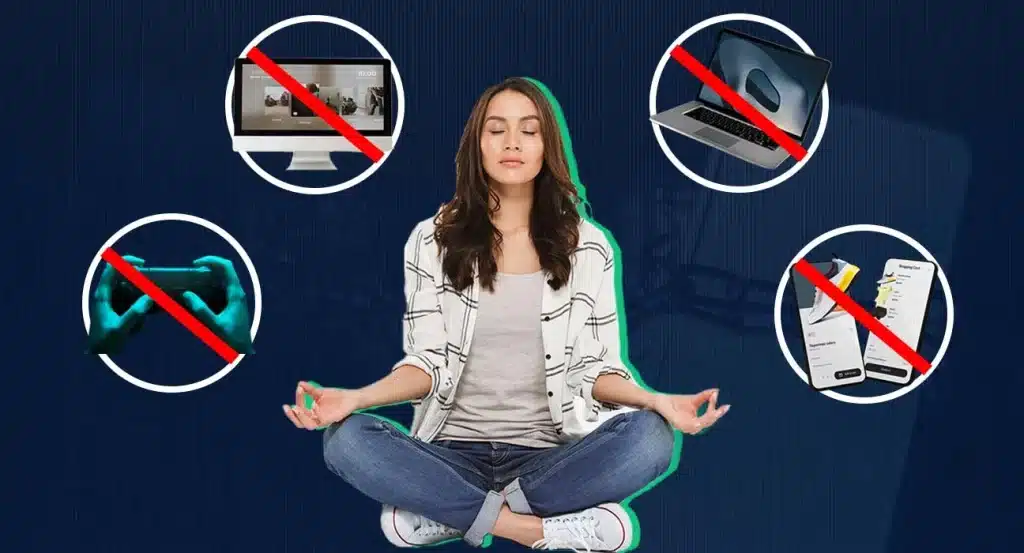The Benefits of Taking Regular Digital Detoxes
Oliver Cooper July 18, 2025
In today’s fast-paced, technology-driven world, we’re constantly surrounded by our devices—smartphones, laptops, tablets, and wearables. While these gadgets make life easier and more convenient, they can also cause stress, anxiety, and fatigue. The constant buzzing of notifications and the endless flood of information can overwhelm us. That’s where the concept of a digital detox comes into play.
Taking a break from screens and digital devices isn’t just a trend; it’s becoming a crucial practice for mental and physical well-being. If you’ve been feeling mentally drained, or you’ve noticed that your constant screen time is affecting your mood, sleep, and relationships, it might be time for a digital detox. Let’s explore why this practice is so beneficial, and how you can begin incorporating it into your daily life.

Why Digital Detoxes Are More Important Than Ever
The Tech Overload Problem
We live in an era where the average person checks their smartphone over 80 times a day. Whether it’s scrolling through social media, responding to emails, or checking the news, we are inundated with information constantly. This constant engagement with digital media can lead to a phenomenon called “tech overload.”
Research has shown that tech overload can have a negative impact on our mental health, contributing to stress, anxiety, and a lack of focus. A report from the American Psychological Association found that prolonged exposure to screens, especially social media, is linked to feelings of anxiety, depression, and loneliness. While technology itself isn’t inherently harmful, the way we use it, especially when it becomes excessive, can cause serious mental strain.
This is why more and more people are turning to digital detoxes to help manage the negative effects of technology. A digital detox involves intentionally disconnecting from digital devices for a period of time to reset both your mind and your body.
The Surprising Benefits of Regular Digital Detoxes
Taking a digital detox is about more than just disconnecting from your devices; it’s about reclaiming your time, attention, and mental health. Here are some of the most compelling benefits of taking regular digital detoxes:
1. Improved Mental Health
Perhaps the most significant benefit of a digital detox is its impact on mental health. Continuous exposure to digital screens can increase levels of anxiety and stress. A study conducted by the University of California, Irvine, found that taking regular breaks from technology can help reduce cortisol (the stress hormone) levels and improve overall emotional well-being.
Taking a break from social media can be especially beneficial. Studies show that people who limit their time on social platforms often experience a decrease in stress and depression. By removing the pressure to constantly compare yourself to others and the constant influx of information, your mind can experience much-needed relief.
2. Better Sleep Quality
The blue light emitted from smartphones, tablets, and computers has been shown to interfere with melatonin production, the hormone responsible for regulating sleep. According to the National Sleep Foundation, exposure to this blue light, especially before bed, can disrupt sleep patterns and make it harder to fall asleep.
By cutting down on screen time, particularly in the evening, you can improve your sleep quality. Research from the University of California suggests that people who engage in a digital detox by avoiding screens at least 30 minutes before bed fall asleep faster and experience deeper, more restorative sleep.
3. Enhanced Productivity and Focus
Constant notifications and digital distractions are major productivity killers. Studies have shown that it takes an average of 23 minutes to regain focus after being distracted by a smartphone notification. If you’re constantly checking your devices, this can seriously undermine your ability to concentrate and get work done.
Taking a break from digital devices allows your brain to recharge. With fewer distractions, your focus and concentration levels improve, leading to increased productivity. A digital detox can give you the mental clarity needed to tackle tasks more effectively and efficiently.
4. Improved Relationships and Social Interaction
In the digital age, it’s easy to become absorbed in our devices and forget the importance of face-to-face interactions. While technology has made communication more convenient, it’s often superficial. Spending time on your phone instead of engaging with loved ones can lead to weakened relationships.
By disconnecting from technology, you open up more opportunities for meaningful, in-person interactions. Studies show that people who regularly unplug from their digital devices are more likely to feel connected to others, experience better social interactions, and report higher levels of happiness in their relationships.
5. Physical Health Benefits
Prolonged screen time isn’t just bad for your mental health; it can also affect your physical well-being. Sitting for long periods in front of a screen can lead to back pain, eye strain, and poor posture. Furthermore, the lack of movement associated with extended screen time contributes to a sedentary lifestyle, which is linked to numerous health problems such as obesity, heart disease, and diabetes.
Taking a digital detox encourages you to step away from your screens and engage in more physical activities. Whether it’s walking, exercising, or simply stretching, disconnecting from technology gives you the opportunity to focus on your physical health. By spending more time outdoors or engaging in physical hobbies, you can significantly improve your fitness levels and overall well-being.
How to Implement a Digital Detox in Your Life
If you’re ready to reap the benefits of a digital detox, here are some practical tips for getting started:
1. Start Small
You don’t have to go cold turkey with your digital detox. Start small by setting aside a specific time each day to disconnect from your devices. For example, try going screen-free during meals or before bedtime. Gradually increase the amount of time you spend away from technology, aiming to build a habit of digital detoxing.
2. Set Boundaries with Technology
It’s important to set boundaries with technology to ensure you don’t fall back into old habits. Use features like “Do Not Disturb” or turn off notifications for non-urgent apps. You can also set limits on how long you use certain apps each day by using built-in screen time tracking tools on your devices.
3. Fill Your Time with Non-Digital Activities
A digital detox is an opportunity to rediscover activities that don’t involve screens. You can spend your newfound free time reading, journaling, exercising, cooking, or practicing mindfulness. Engaging in non-digital hobbies helps you reconnect with yourself and others.
4. Encourage Others to Join You
Getting others involved in your digital detox can make it more enjoyable and motivating. Invite your family or friends to join you in unplugging for a set period of time each week. Plan activities that allow you to engage with each other without the interference of technology, like hiking, cooking, or having a game night.
5. Take a Weekend or Vacation Detox
For a more significant digital detox, consider taking a weekend or even a week-long break from screens. Go on a vacation where technology isn’t a distraction. Stay in a cabin in the woods, a remote beach resort, or an area that encourages outdoor activities and mindfulness.
Conclusion: Reclaim Your Life with a Digital Detox
In today’s digital-first world, it’s easy to feel like we’re constantly connected and overwhelmed by technology. However, by taking regular digital detoxes, you can significantly improve your mental health, sleep, productivity, relationships, and physical well-being. Disconnecting from technology doesn’t have to mean giving up your devices entirely—it’s about taking breaks, setting boundaries, and making space for meaningful real-world experiences.
If you’re feeling overwhelmed by constant screen time, it’s time to hit the reset button and embrace the benefits of a digital detox. Your mind and body will thank you.
References
- American Psychological Association (APA). (2017). Stress in America: Coping with Change. Available at: https://www.apa.org (Accessed on: 18 July 2025).
- University of California, Irvine. (2020). The Effects of Technology on Mental Health and Stress. Available at: https://www.uci.edu (Accessed on: 18 July 2025).
- National Sleep Foundation. (2021). How Technology Affects Sleep. Available at: https://www.sleepfoundation.org (Accessed on: 18 July 2025).







